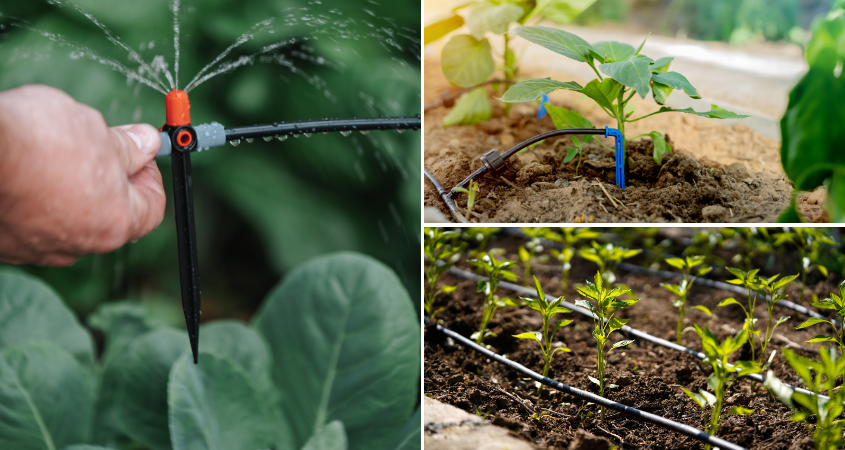
Optimizing irrigation practices is a fundamental aspect of modern agriculture that seeks to enhance water efficiency, promote crop health, and contribute to sustainable farming. Here’s a detailed exploration of key strategies for optimizing irrigation practices.
Drip irrigation is a highly efficient method that delivers water directly to the base of plants, minimizing water wastage through evaporation or runoff. By using a network of tubes and emitters, this system ensures a controlled and precise application of water. Farmers benefit from increased water-use efficiency, reduced water-related costs, and improved crop yields.
Precision irrigation involves the use of advanced technologies, such as soil moisture sensors and weather data, to tailor irrigation schedules to the specific needs of crops. By monitoring soil moisture levels in real-time and considering environmental conditions, farmers can optimize the timing and amount of water application. This precision approach prevents overwatering, conserves water resources, and supports overall crop health.
Understanding and managing soil moisture is crucial for optimizing irrigation. Farmers assess soil characteristics and moisture levels to determine the appropriate irrigation schedule. Techniques such as mulching and cover cropping help retain soil moisture, reducing the frequency and amount of irrigation needed. Effective soil moisture management enhances water retention and supports sustained crop growth.
Establishing a well-defined irrigation schedule is key to optimization. Farmers consider factors such as crop type, growth stage, and local climate conditions when determining when and how much to irrigate. By aligning irrigation practices with the specific needs of crops, farmers avoid water stress and ensure optimal conditions for growth.
VRI technology allows farmers to adjust the rate of water application across different areas of a field based on varying soil and crop requirements. This targeted approach optimizes water distribution, avoiding both overwatering and underwatering. VRI systems, often integrated with GPS technology, enhance precision in irrigation, resulting in resource savings and improved crop performance.
Regular water quality testing and monitoring provide valuable insights for optimization. Farmers track the quality of irrigation water, identifying any potential contaminants or deviations from optimal conditions. This proactive approach allows for continuous refinement of irrigation practices, ensuring that water used for irrigation meets the required standards for both soil and crop health.
In conclusion, optimizing irrigation practices is essential for sustainable agriculture. By embracing advanced irrigation technologies, precision management of soil moisture, strategic scheduling, and irrigation water testing, farmers can maximize the benefits of water resources, promote crop health, and contribute to the overall resilience of agricultural systems.
#Waterislife #Watermanagement #Waterconservation
Order our services and get to know how to improve your soil for better yeilds.